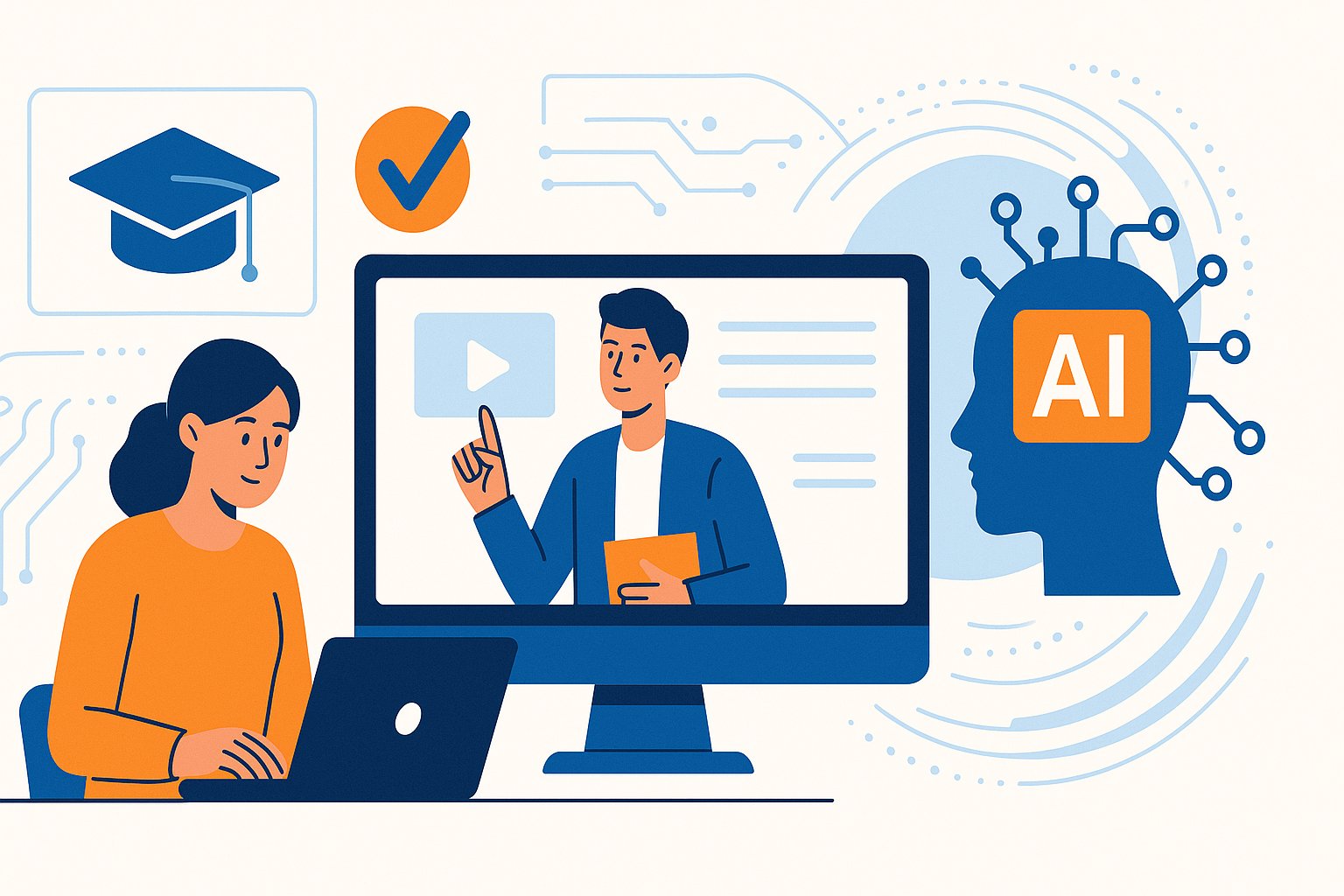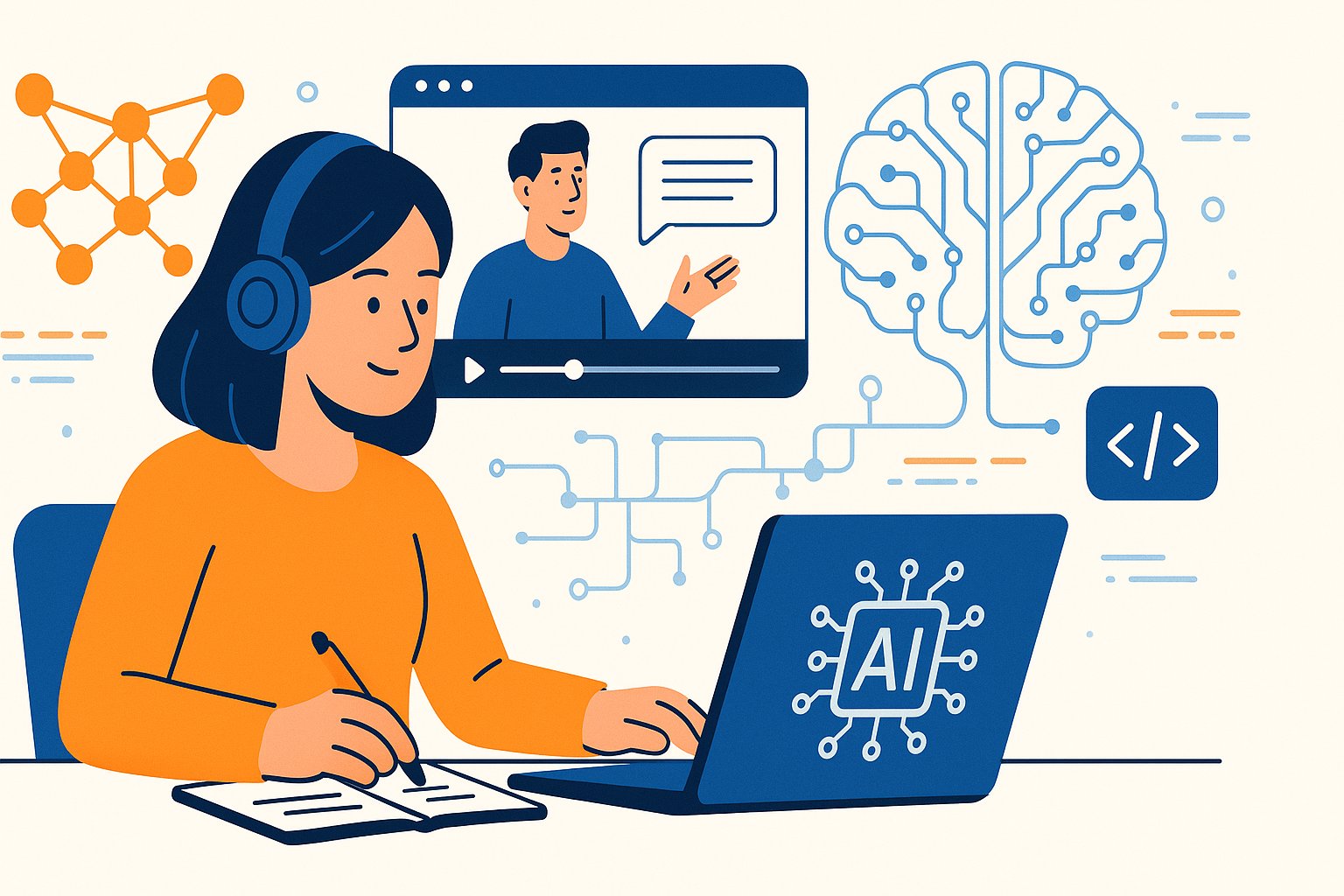8 AI Courses for Lawyers that You Should Know About in 2025
Unlock the future of legal practice with these 8 AI courses tailored for lawyers. Stay ahead of the curve by mastering AI tools, ethics, and strategies to enhance your legal expertise and streamline your workflow in 2025.
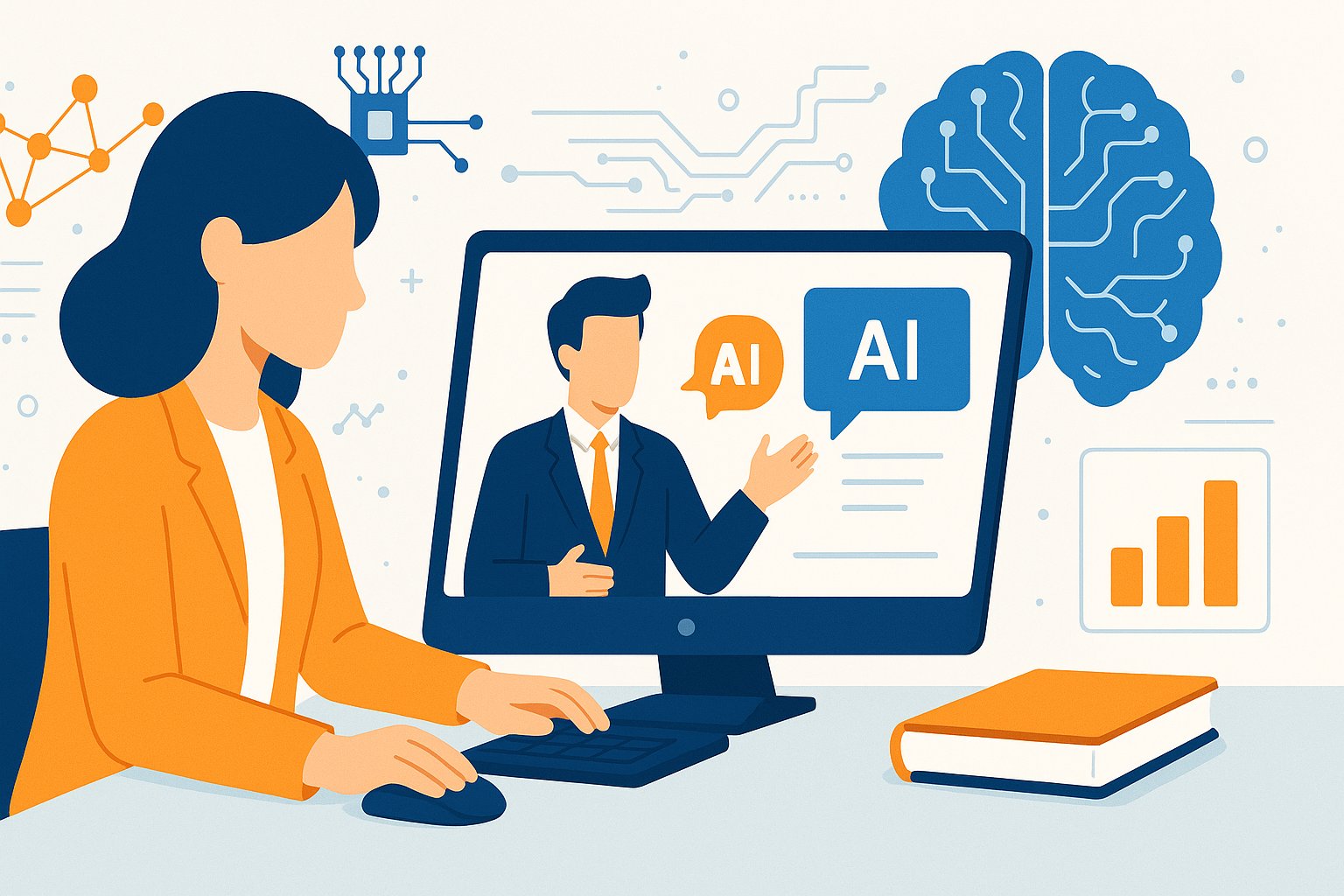
In the modern professional landscape, the integration of artificial intelligence (AI) is not just a trend but a necessity, and the legal field is no exception. As AI technologies continue to evolve, they are increasingly impacting various industries, including law. For legal professionals, understanding and leveraging AI is crucial to staying competitive and effective. The potential job impact is significant, as AI can automate routine tasks, assist in complex decision-making, and even predict legal outcomes. Lawyers who upskill in AI will not only enhance their practice but also secure their positions in a rapidly changing job market.
Why AI matters for Lawyers today
AI's importance for lawyers today cannot be overstated. A recent study revealed that 69% of businesses now use AI technologies to streamline operations and improve efficiency. In the legal sector, AI tools are being adopted to enhance everything from document review to legal research, offering unprecedented speed and accuracy. The purpose of this article is to guide legal professionals in identifying the most valuable AI courses available. By doing so, lawyers can ensure they are equipped with the knowledge and skills needed to harness these powerful tools.
The Growing Role of AI in Lawyers
AI is being used in various applications within the legal field, including automation of document review, improved decision-making processes, and personalized client interactions. These technologies are reshaping traditional tasks, allowing lawyers to focus on more strategic aspects of their work. AI assists in predicting case outcomes, conducting thorough legal research, and managing case loads with greater efficiency. As these tools become more prevalent, they are transforming workflows, reducing the time spent on mundane tasks, and increasing overall productivity.
Benefits of becoming an AI expert in Lawyers
For lawyers, becoming proficient in AI offers numerous benefits. First and foremost, it enhances their ability to provide innovative and efficient legal services. AI expertise allows lawyers to offer more accurate risk assessments and improve client satisfaction by delivering faster results. Additionally, understanding AI can open up new career opportunities and specializations within the legal sector. Lawyers who are knowledgeable about AI can position themselves as leaders in their field, offering insights and solutions that are informed by the latest technological advancements.
This article will compare eight AI courses tailored for legal professionals, including the CompleteAI Training, which offers a comprehensive library of video courses and certifications. By exploring these options, lawyers can find the courses that best suit their learning preferences and career goals, ensuring they remain at the forefront of AI integration in the legal industry.

Comparison: All AI Courses for Lawyers (Updated Q2' 2025)
| Course Name | Provider | Price | Key Topics | Pros | Cons | Best For |
|---|---|---|---|---|---|---|
| AI for Lawyers | CompleteAI Training | $29/month (monthly), $8.25/month (yearly) | Specialized video courses, AI certifications, AI tools, AI news | Highest rating, extensive courses, daily updates, affordable pricing | Subscription based, crucial for continuous learning | Lawyers professionals |
| Artificial Intelligence for Lawyers (2025) | International Law Institute - South African Center for Excellence | In-Person: $999 (1 week individual), $800 (group); Online: $600 (1 week individual), $400 (group) | AI fundamentals, governance, legal applications, ethics | Comprehensive coverage, flexible format, group discounts | Relatively high tuition, limited in-person locations | General learners |
| AI for Lawyers and Other Advocates Specialization | Coursera (University of Michigan) | $39-$79/month | AI tools, generative AI, ethical considerations | Designed for legal professionals, practical tools, flexible learning | Subscription pricing, no university credit | General learners |
| AI Course for Legal Professionals | American Arbitration Association | Discounted for first 30 days; Free for PLI Privileged Members | Generative AI, change management, leadership skills | Focus on leadership, real-world case studies, certification badges | Pricing beyond initial discount not specified, new course | General learners |
| Refonte Learning Jurimetric & AI Program | Refonte Learning | Not specified | Legal analytics, predictive modeling, AI ethics | Specialized for legal professionals, mentorship, hands-on projects | Pricing requires inquiry, intensive program | General learners |
| Generative AI for the Legal Profession | UC Berkeley Law School | Not specified | AI drafting, prompt engineering, risk management | Focus on generative AI, ethical emphasis | Short course, pricing not stated | General learners |
| University Law School AI and Legal Technology Programs | Various (Stanford Law, Harvard Law, etc.) | Varies by program | E-discovery, data analytics, blockchain, AI applications | Prestigious credentials, comprehensive context, networking | Higher cost, less flexible scheduling | General learners |
| Continuing Legal Education (CLE) and AI Workshops | Practising Law Institute, Bar Associations | Varies; often moderate fees | AI tools, evolving AI law, ethics | Updated yearly, CLE credits, shorter time commitment | Less depth, may not provide hands-on experience | General learners |
Understanding AI Training for Lawyers Professionals
As artificial intelligence continues to influence various sectors, the legal profession is no exception. Lawyers and legal professionals are now seeking AI courses to enhance their understanding and application of AI tools in their practice. This article compares several AI training programs designed for legal professionals, highlighting the strengths and areas of improvement for each, to aid in selecting the best course for individual needs.
Course 1: CompleteAI Training
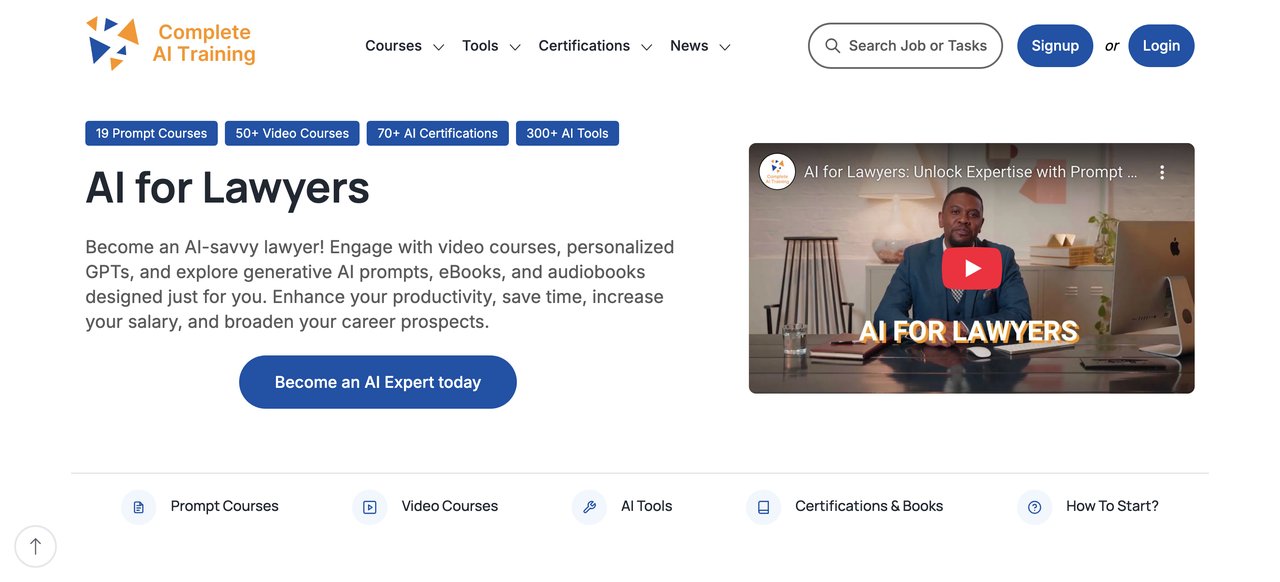
CompleteAI Training offers a comprehensive library of over 100 video courses and certifications specifically curated for legal professionals. This subscription-based service provides daily updates on AI tools and industry news relevant to lawyers. With affordable pricing, especially when billed annually, it is accessible for many practitioners.
Key Topics Covered: AI fundamentals, governance, practical AI applications in legal contexts.
Target Audience and Skill Level: Legal professionals seeking extensive AI knowledge. No prior AI experience required.
- Pros:
- Extensive range of AI courses and certifications tailored for lawyers
- Daily updates on relevant AI tools and news
- Affordable pricing
- Cons:
- Subscription model requires ongoing commitment
Who Would Benefit Most: Lawyers looking for a broad and continually updated AI learning experience.
Course 2: Artificial Intelligence for Lawyers (2025) by International Law Institute - South African Center for Excellence (ILI - SACE)
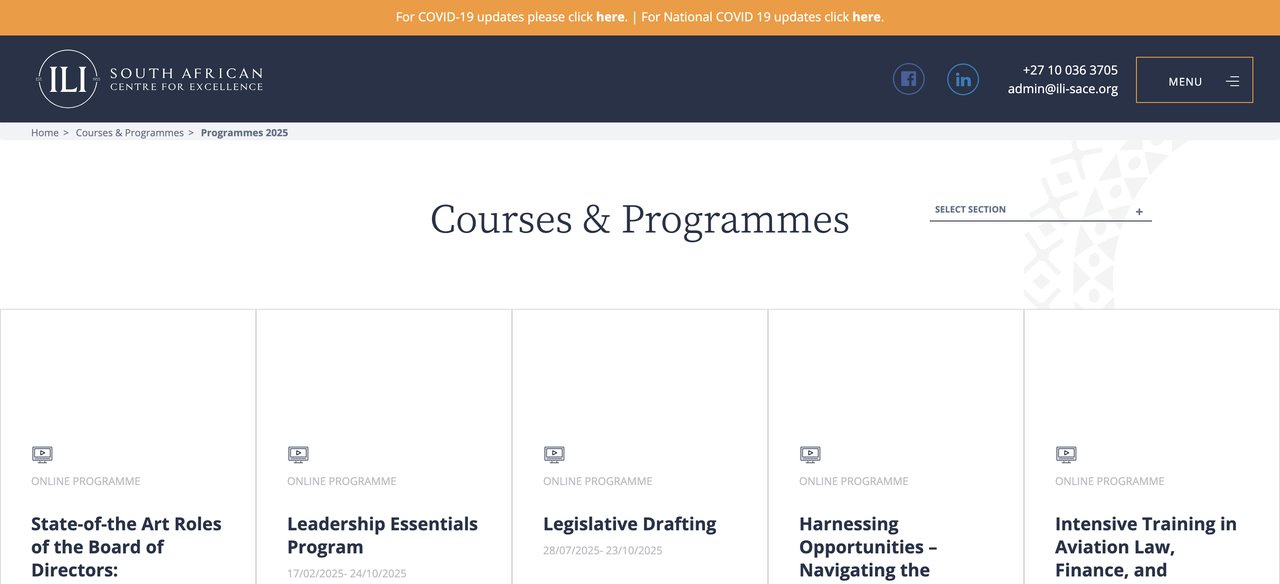
ILI - SACE offers a course introducing lawyers to AI's impact on the legal field. Available both online and in-person in South African cities, it covers AI fundamentals, governance, and applications across various legal sectors.
Key Topics Covered: AI in torts, contracts, IP, litigation, fraud detection, office management, ethics.
Target Audience and Skill Level: Legal professionals interested in comprehensive AI coverage. Suitable for all levels.
- Pros:
- Comprehensive coverage with flexible formats
- Group discounts available
- Addresses technical and ethical AI aspects
- Cons:
- Higher tuition fees
- In-person sessions restricted to South African locations
Who Would Benefit Most: Lawyers seeking a thorough understanding of AI in various legal contexts and willing to invest in a comprehensive program.
Course 3: AI for Lawyers and Other Advocates Specialization by Coursera (University of Michigan)
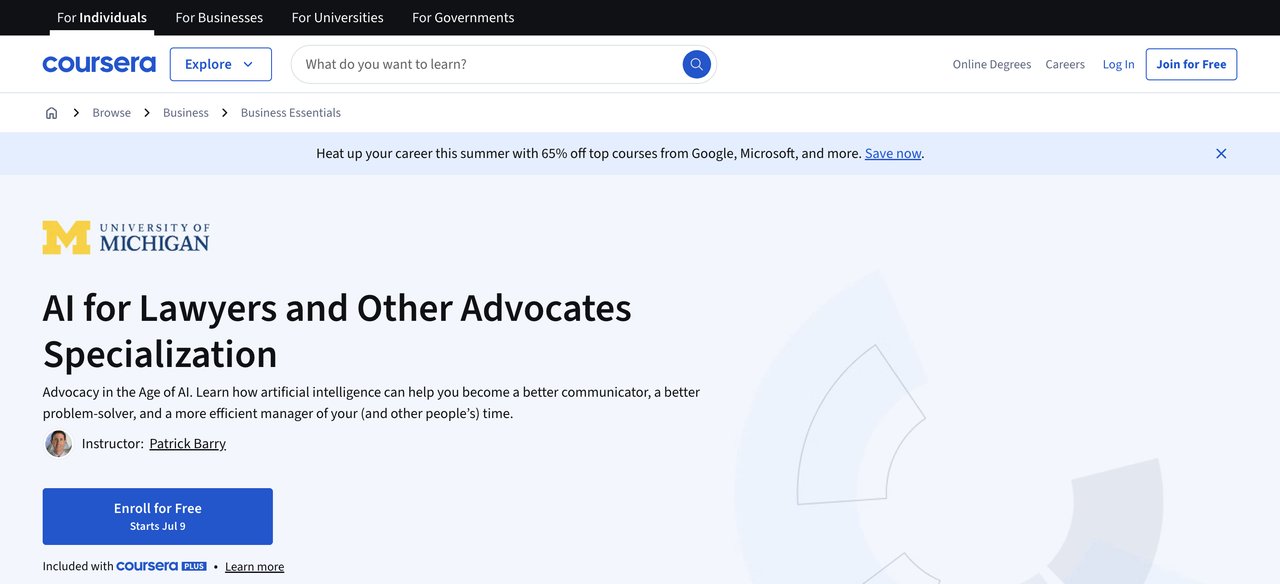
The Coursera specialization from the University of Michigan is a beginner-level, four-course series designed for legal professionals to effectively use AI in practice. It emphasizes practical tools and ethical considerations.
Key Topics Covered: AI tools for communication, creativity, time management, leadership.
Target Audience and Skill Level: Legal professionals new to AI. Self-paced for beginners.
- Pros:
- Practical AI tool usage in legal contexts
- Flexible, self-paced format
- Financial aid available
- Cons:
- Subscription cost can accumulate
- No university credit, only a certificate
Who Would Benefit Most: Lawyers starting with AI, needing a flexible learning schedule and practical tool usage.
Course 4: AI Course for Legal Professionals by American Arbitration Association (AAA)
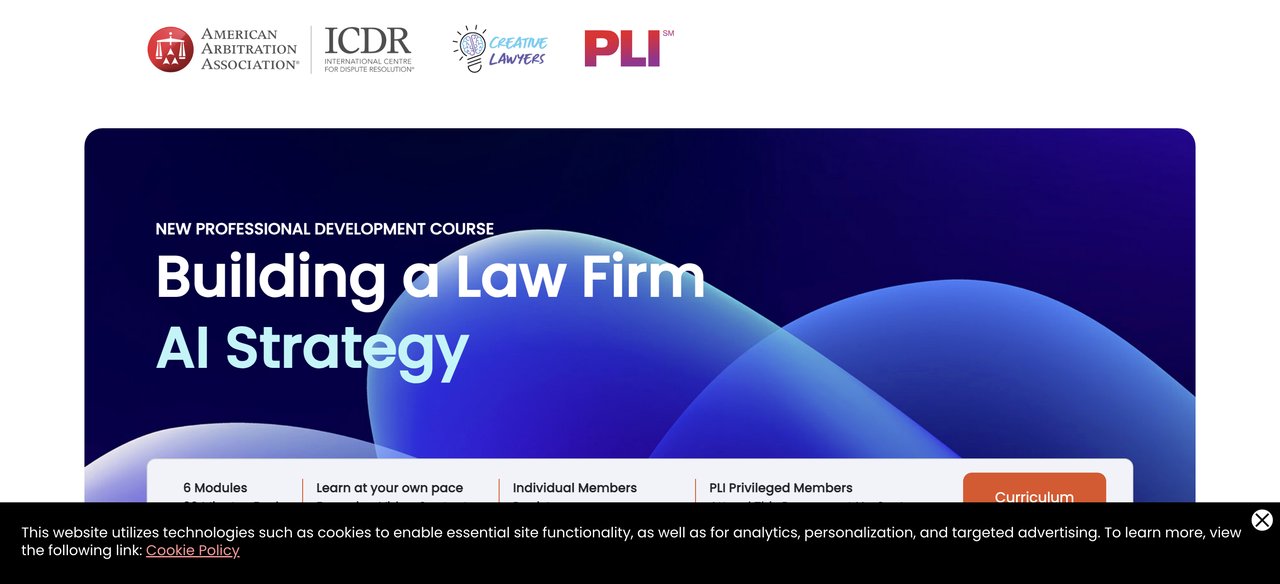
The AAA course, in partnership with Creative Lawyers and PLI, targets legal leaders focusing on AI-driven change. It includes practical content, case studies, and certification badges.
Key Topics Covered: Generative AI, innovation culture, AI project management, leadership skills.
Target Audience and Skill Level: Law firm leaders and lawyers at all career stages. Accessible to solo practitioners.
- Pros:
- Leadership and change management focus
- Real-world case studies
- Certification badges enhance profiles
- Cons:
- Pricing details beyond initial discount are unclear
- New course; long-term impact not established
Who Would Benefit Most: Legal professionals in leadership roles seeking to drive AI adoption.
Course 5: Refonte Learning Jurimetric & AI Program
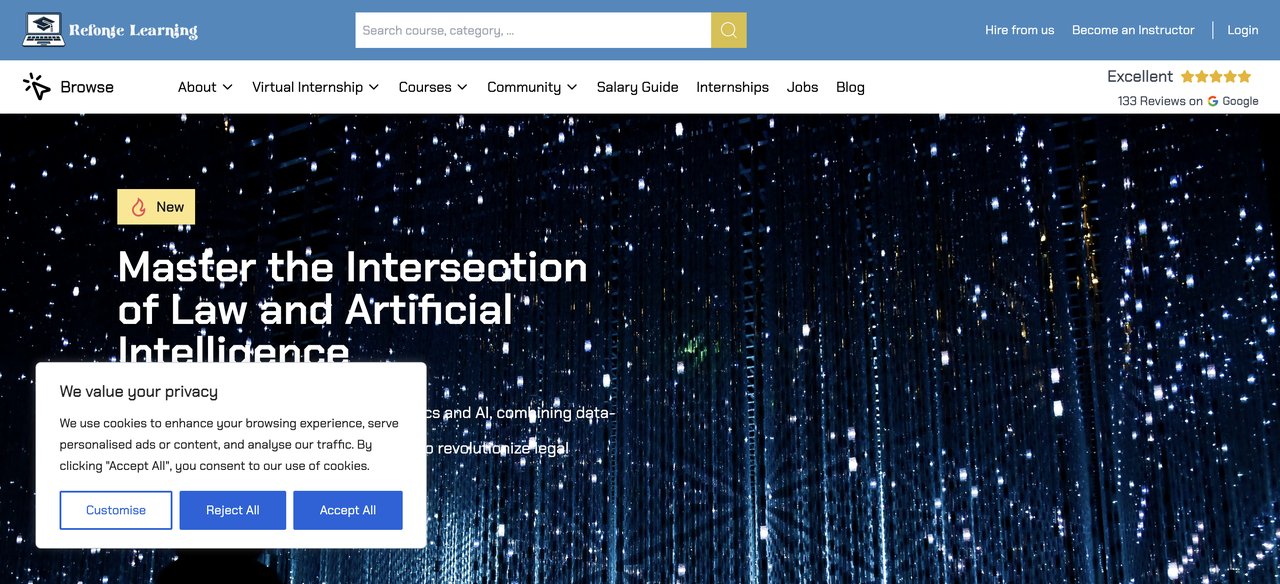
The Refonte Learning program combines AI with legal analytics training. It offers hands-on projects and mentorship for lawyers and law students.
Key Topics Covered: Legal data science, predictive modeling, AI document automation, ethics.
Target Audience and Skill Level: Legal professionals interested in data science. Suitable for interns and beginners.
- Pros:
- Mentorship and internship opportunities
- Covers AI fundamentals and legal applications
- Practical exercises and certificate options
- Cons:
- Pricing not clearly stated
- Time-intensive program
Who Would Benefit Most: Lawyers and students focused on legal data science and seeking practical experiences.
Course 6: Generative AI for the Legal Profession by UC Berkeley Law School

UC Berkeley's course centers on generative AI applications in legal practice. It covers essential aspects of AI drafting, risk management, and ethical considerations.
Key Topics Covered: AI drafting, prompt engineering, risk management, confidentiality.
Target Audience and Skill Level: Lawyers interested in the latest AI technologies. Suitable for a broad audience.
- Pros:
- Focus on generative AI technology
- Ethical and risk management emphasis
- Suitable for diverse legal audiences
- Cons:
- Short duration may require additional learning
- Pricing details not clearly stated
Who Would Benefit Most: Legal professionals interested in cutting-edge AI applications.
Course 7: University Law School AI and Legal Technology Programs

Top universities like Stanford and Harvard offer AI and legal technology programs. These courses provide academic credentials and cover topics like e-discovery, data analytics, and AI applications.
Key Topics Covered: E-discovery, data analytics, blockchain, AI applications in law.
Target Audience and Skill Level: Legal professionals seeking prestigious credentials. Requires commitment.
- Pros:
- Prestigious academic credentials
- Comprehensive legal innovation context
- Networking opportunities
- Cons:
- Higher cost and time commitment
- Less flexible scheduling
Who Would Benefit Most: Lawyers aiming for advanced credentials and networking in legal technology.
Course 8: Continuing Legal Education (CLE) and AI Workshops by Practising Law Institute (PLI), Bar Associations

PLI and Bar Associations offer CLE courses focusing on AI tools and evolving AI law. These workshops are ideal for fulfilling CLE requirements while staying informed about AI developments.
Key Topics Covered: AI tools, evolving AI law, ethics, regulations.
Target Audience and Skill Level: Practicing attorneys needing CLE credits. Shorter time commitment.
- Pros:
- Updated to reflect latest AI legal issues
- CLE credits available
- Shorter time commitment
- Cons:
- Less depth than full certificate programs
- May not offer hands-on AI tool experience
Who Would Benefit Most: Practicing attorneys needing CLE credits and current AI legal knowledge.
Overall Recommendations
Choosing the right AI course depends largely on individual needs and career goals. For those seeking a comprehensive, continually updated education, CompleteAI Training offers an extensive range of resources at an affordable price. Legal professionals interested in a thorough understanding of AI's impact in various legal contexts might consider the ILI - SACE program, despite its higher cost. Those new to AI may find Coursera's specialization or AAA's course more accessible. For those focused on credentials and networking, university programs offer prestigious options, albeit at a higher cost and commitment.

